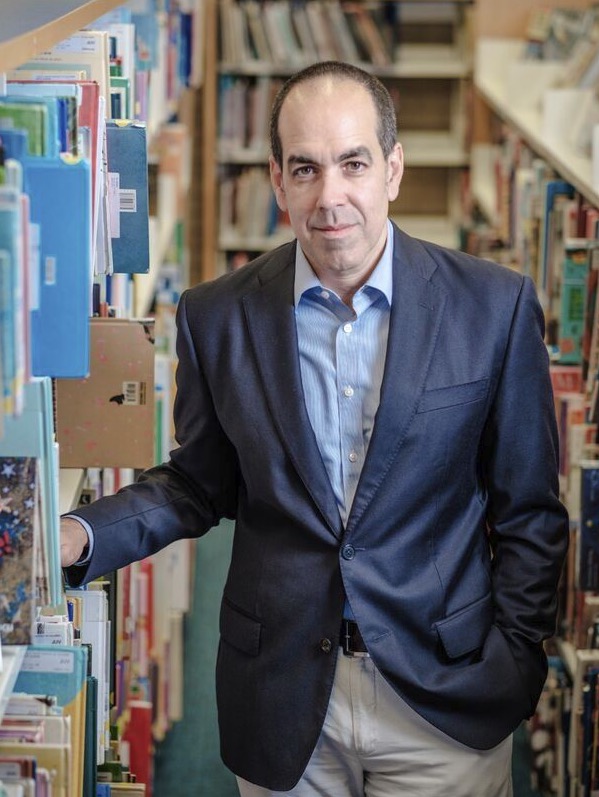District of Columbia Public Library
901 G Street, NW
Suite 301
Washington, DC 20001-4599
United States
The Grants to States Program
The Grants to States Program is the largest grant program run by IMLS; it provides funds to State Library Administrative Agencies (SLAAs) using a population-based formula set by the law. SLAAs determine goals and objectives for the funds in their statutorily required five-year plan (see below). For more information, see the Grants to States program overview.
- Annual Allotments20201064056.0020211103450.0020221092101.0020231256558.0020241256248.00
- 5 Year Plan Text
Each state creates a 5-year plan for its programs to strengthen the efficiency, reach, and effectiveness of library services. View all states' plans.
5 year planAttachment Size dc5yearplan.pdf 417.23 KB
- 5 Year Evaluation Text
At the end of a 5-year period, each state reports their results in achieving goals and objectives projected in their 5-Year Plan. View all states' evaluations.
5 year evaluationAttachment Size dc5yearevaluation.pdf 7.19 MB

“The needs and interests of our exceptionally diverse city continue to guide our agenda, outreach, and partnerships. Adult learning initiatives, expanding access to technology and digital resources for all, providing extensive local history resources and archives, and continuing to improve services to all residents of the District are some of our leading priorities using federal funds.”
-- Rich Reyes-Gavilan, Executive Director, District of Columbia Public Library
Project Examples
Adult Literacy Resource Center
The Adult Learning Department (ALD) is a specialized resource housed within the DC Public Library’s main branch. The department provides resources, programs, and services for adult learners who may be working towards obtaining a high school diploma, improving their English as non-native speakers, and seeking to advance their computer skills. The ALD offers tutoring services for adult learners who are working towards obtaining a high school diploma, including a skills assessment, practice test, and about 15 hours of tutoring each week. Tutoring is offered as a free, drop-in service with no formal enrollment requirements. In addition to salary support for in-person tutoring, federal funds supported technology related to tutoring and other virtual learning efforts.
IMLS Funds: $98,649.95
Peer Outreach Program
The Peer Outreach Program at DC Public Library engages with library customers experiencing or at risk of homelessness, mental illness, and/or substance use disorders. Peers have lived experience with homelessness and meet customers at library branches to assist in obtaining critical documents such as birth certificates, government photo identification, and social security cards. They also work with customers to find shelter, housing, treatment programs, mental health services, food, clothing and much more. Peers function as role models by demonstrating their competency in personal recovery through coping skills, and by serving as consumer advocates who provide clients with information and support. Critical to this work is building rapport and trust with a customer so that the concrete steps of moving out of homelessness, and/or into recovery, can begin.
IMLS Funds: $115,871.10
Services for People with Disabilities
The DC Public Library used LSTA funds to enhance services for customers and staff with disabilities, including Deaf and hard-of-hearing individuals and patrons who are blind, low-vision or DeafBlind. This included providing American Sign Language (ASL) interpreters for library classes, programs, and meetings, and the purchase of specialized equipment such as magnification devices for patrons who need to magnify library materials, or real-time communication devices such as the Ubi Duo for staff or the public to communicate with people who are Deaf, hard of hearing, or who may not be fluent in spoken English.
IMLS Funds: $74,976.53
Review recent Grants to States projects from this state library in the State Program Report database.
Search the Awarded Grants Database for additional details about awards in this state
Five-Year Plan Highlights
Goal 1: Recover Together – The library will strengthen existing services and develop new ones that support District recovery priorities, such as improving personal health, education, career prospects, and digital inclusion.
- Projects include:
- Digital inclusion and literacy
- Workforce development and entrepreneurship
- Supporting students
- Trauma-informed library services
Goal 2: Welcome Everyone – All local residents will feel welcomed to an accessible library where their needs are centered.
- Projects include:
- Invest in Universal Access (programs and spaces accessible to all)
- Library in Your Language (programs, services, and resources in languages other than English)
- Co-Design the Future Library (customer experience research and collaborative design)
- Library services outside the library
Goal 3: Invest in Us – District residents will benefit from improved library services through enhanced investment in staff training and development and innovative collections, technology, and opportunities.
- Projects include:
- Building capacity through talent management
- Staff training and development
- Enhancements to collections and technology
Goal 4: Stay Rooted – D.C. history and culture will be celebrated through community-centered programming, exhibits, and collections.
- Projects include:
- People’s Archive (digitization and preservation of local history collection)
- Community Conversations, including exhibits, DC Reads, and Oral History Collaborative
IMLS Data Collection
State Library Administrative Agency Survey
The State Library Administrative Agency Survey (SLAA) provides descriptive data about state library agencies for all fifty states and the District of Columbia. To interact with the latest data, please visit the SLAA Survey Comparison Tool.
Public Libraries Survey
The Public Libraries Survey (PLS) provides national descriptive data on the status of public libraries in the United States and its territories. Explore state profiles representing more than 9,000 public library systems and over 17,000 public library outlets.
